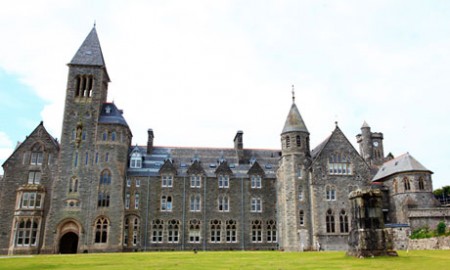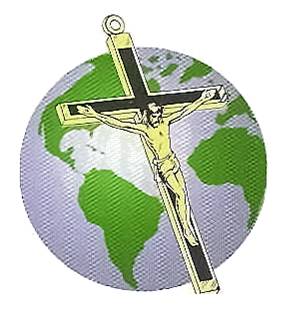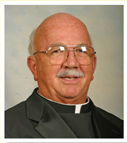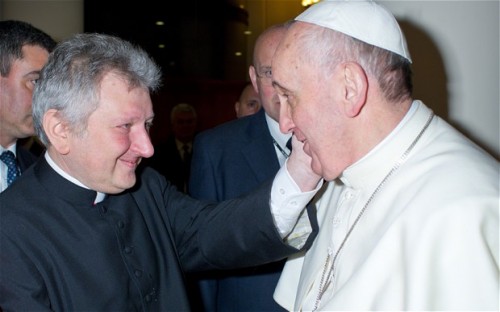Priest claims he was abused by older cleric, and church is punishing him for speaking out
By Catherine Deveney
The Catholic church in Scotland faces a fresh sex-abuse crisis involving some of the country’s senior clerics. The Observer has seen documents suggesting a scandal similar to the one that led to the resignation of Cardinal Keith O’Brien as Archbishop of Edinburgh and St Andrews.
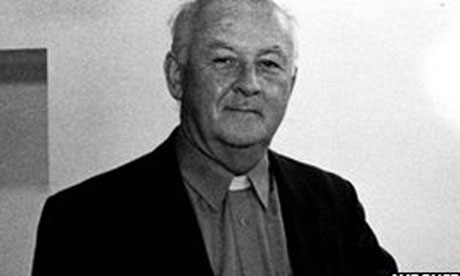 As a seminarian, a priest known as “Father Michael”, who wishes to remain anonymous while an appeal to Rome is made, said he was sexually assaulted by a parish priest, Father Paul Moore. Father Michael said the church failed to deal appropriately with his complaint over a 17-year period, and that he is now being ousted from the church while, he feels, his abuser is being protected.
As a seminarian, a priest known as “Father Michael”, who wishes to remain anonymous while an appeal to Rome is made, said he was sexually assaulted by a parish priest, Father Paul Moore. Father Michael said the church failed to deal appropriately with his complaint over a 17-year period, and that he is now being ousted from the church while, he feels, his abuser is being protected.
Father Michael is recovering from cancer but has been refused permission by Bishop John Cunningham of Galloway to reduce his workload during his convalescence.
The church has demanded that he resign or face removal. The priest, who reported Moore to the police in 1997, said he feels this treatment amounts to punishment for whistle-blowing.
“It’s a tragic story,” said Father Michael. “It’s about cover-up, deceit and lies. The church is a big mafia, and they trash you. They will do everything to destroy me.”
The bitter internal division comes just days after the “new broom” appointment of Vatican diplomat Leo Cushley to replace O’Brien, who resigned after admitting inappropriate sexual behaviour towards priests in his care. Father Michael requested Cardinal O’Brien’s intervention in 1996 and again in 2013. O’Brien expressed “shock”, he said, but said he could not help. Father Michael also appealed to Cunningham’s predecessor, Bishop Maurice Taylor, and, recently, to O’Brien’s temporary successor, Archbishop Philip Tartaglia. Tartaglia, the senior cleric in Scotland, claimed he could not help as he had no authority in the matter. “I think it is better for me to return these documents to you,” he wrote in March 2013.
Father Michael alleged the assault took place at St Quivox church in Prestwick in 1996. “I woke to find Moore fondling me under the bedclothes. I placed a chair behind the door and would sometimes hear it rattling,” he said. He claimed the incident was repeated and he didn’t know where to turn.
While Moore was away from the parish, a young man visited. He claimed to Father Michael that Moore had sexually abused him as an altar boy. He gave Father Michael details of another alleged victim.
Father Michael claims that Taylor insisted he remain in the parish and advise Moore to visit him. Confronted by Father Michael, he alleges Moore reacted violently and a scuffle broke out. Suddenly, Moore began to weep, confessing everything, including inappropriate behaviour with relatives. He also admitted the abuse to Taylor.
Moore emerged, euphoric, from a subsequent meeting with Taylor. He understood that the bishop said Moore had come voluntarily, so nobody could blame him. Father Michael said he was instructed by Taylor to remain silent. But he became suicidal and informed police about the incident with Moore.
Taylor later said that he spoke to the authorities, but that was after Father Michael had reported the matter to the police. The Procurator Fiscal told Father Michael the case would proceed, but it did not happen.
Moore, who now lives in a church-owned home, is reported to have said that he regretted any of his actions being seen as abusive, and he had not intended them to be so. Taylor refused Father Michael’s repeated pleas for help, it is understood, only allowing him counselling when a centre waived the fee. Moore, however, was sent to Southdown, a Canadian treatment centre for clergy with psychological problems, for reasons that were not made clear. “A letter has been issued to the parish saying I am on leave of absence after sabbatical,” he wrote to Father Michael.
When Moore returned from Canada he went to Fort Augustus Abbey, following which Taylor tried to place him in a home for the elderly in Scotland. Protests ensued and Moore retired to the church property. “He should have been laicised,” insisted Father Michael.
When Taylor retired, Father Michael lobbied his successor. “I know Maurice made mistakes but it’s too late,” Bishop Cunningham allegedly told him. “What would Maurice think of me?”
In 2004, Father Michael was posted to a three-church parish. He merged two but when he was diagnosed with cancer, doctors advised him to drop the third. In February, the Diocese’s vicar general, Willie McFadden, told parishioners to put complaints in writing. Father Michael was told there were 23 complaints but more than 130 letters of support, including one from the parish council, which has petitioned Rome. “This is really about his stance over Paul Moore,” one member claimed.
In June, Bishop Cunningham insisted that Father Michael, who is in his mid-fifties, retire. Still physically weak, he sought counselling. Supportive letters from both his doctor and his therapist were sent to the Bishop but he feels they were used against him.
Last week, a letter signed by Bishop Cunningham told Father Michael he must retire because of “your ill-health, both physical and psychological, as you yourself have detailed to me in your letters and in those sent by your medical doctors and psychotherapist”.
Father Michael has been told to leave by mid-August. “What I have had to face is something very evil. Had I known what I would experience when I was lying on the floor at ordination, I would have stood up and walked out. I focused my life on priesthood, thinking it was about goodness, kindness and everything I wanted to aspire to. I discovered it was nothing like that.”
The Catholic Church refused to comment, “due to the complex legal situation, criminal, civil and canonical”.
Complete Article HERE!
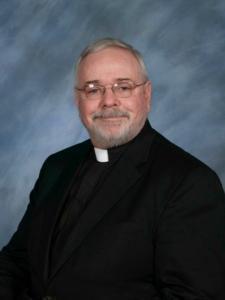 Monsignor Arthur Coyle, 62, of Lowell was arraigned this morning in Lowell District Court. He was ordered held on $500 cash bail and will return to court Sept. 16 for a pretrial conference, said Middlesex district attorney’s spokeswoman Stephanie Guyotte.
Monsignor Arthur Coyle, 62, of Lowell was arraigned this morning in Lowell District Court. He was ordered held on $500 cash bail and will return to court Sept. 16 for a pretrial conference, said Middlesex district attorney’s spokeswoman Stephanie Guyotte.
